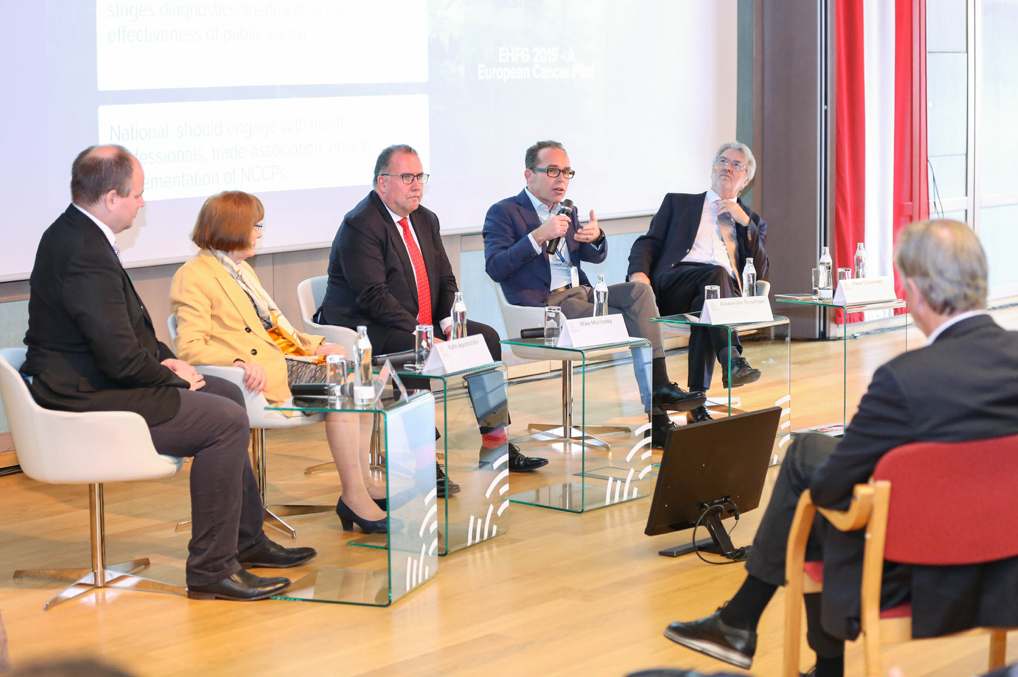A European Cancer Plan – For better, more equal access to cancer care (Guest blog)
18.12.19
In a joint effort, ECCO, ECPC and EFPIA have recently put the European Cancer Plan on the agenda of a session of the European Health Forum Gastein.

(Panel discussion: "A European Cancer Plan: Make it Disruptive!“ session organised by ECPC, ECCO and EFPIA at the European Health Forum Gastein 2019)